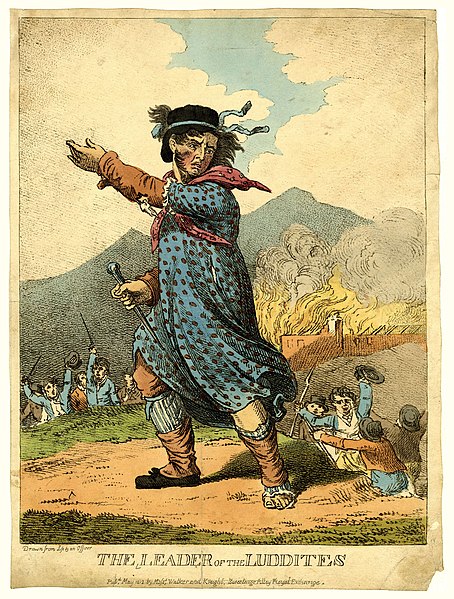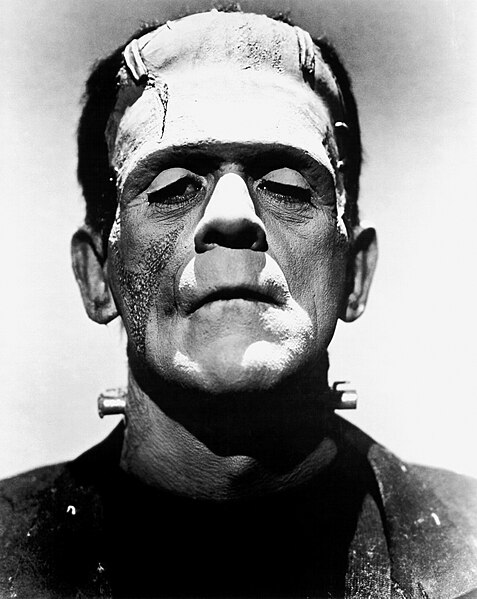Technophobia, also known as technofear, is the fear or dislike of, or discomfort with, advanced technology or complex devices, especially personal computers, smartphones, and tablet computers. Although there are numerous interpretations of technophobia, they become more complex as technology continues to evolve. The term is generally used in the sense of an irrational fear, but others contend fears are justified. It is the opposite of technophilia.
Computers, among many other technologies, are feared by technophobes.
The Leader of the Luddites, engraving of 1812
Frankenstein's Monster is often considered to be an early example of technophobic ideas in art.
The Luddites were members of a 19th-century movement of English textile workers who opposed the use of certain types of cost-saving machinery, and often destroyed the machines in clandestine raids. They protested against manufacturers who used machines in "a fraudulent and deceitful manner" to replace the skilled labour of workers and drive down wages by producing inferior goods. Members of the group referred to themselves as Luddites, self-described followers of "Ned Ludd", a legendary weaver whose name was used as a pseudonym in threatening letters to mill owners and government officials.
The Leader of the Luddites, 1812. Hand-coloured etching.



